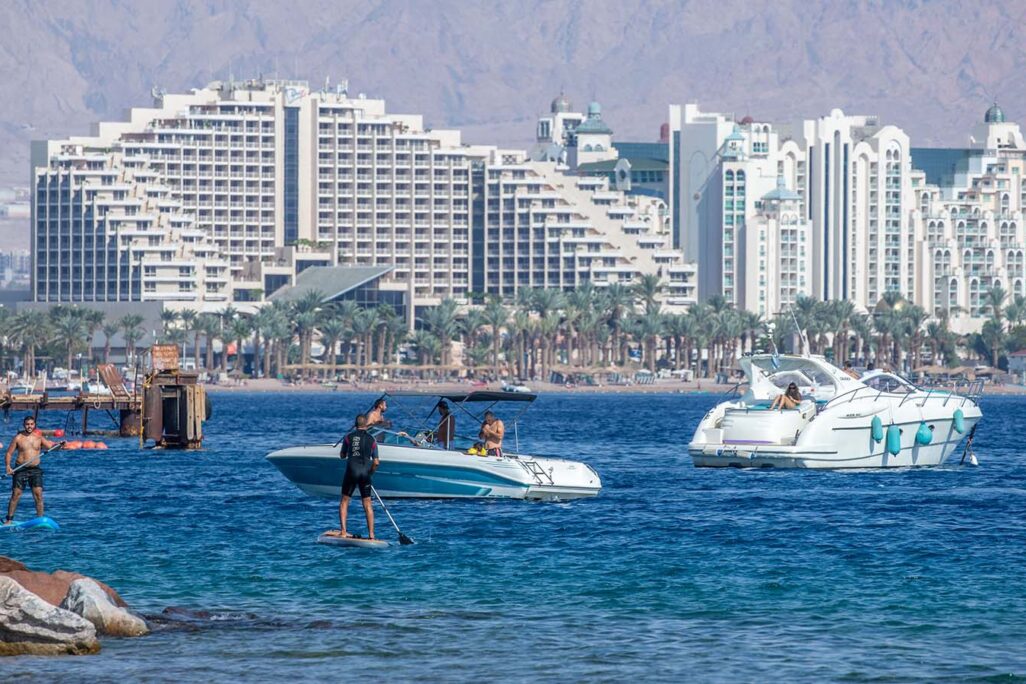
Back in March during the first coronavirus lockdown, Israel’s unemployment rate soared to 25%. But the situation in Eilat was much worse. In the city at the southern tip of Israel, 80% of residents work in tourism.
“We were at 75% unemployment,” said Meir Yitzhak-Halevi, Eilat’s mayor, who pushed Israel's government to create an economic plan for the city. “It cannot be compared to any other city in the country."
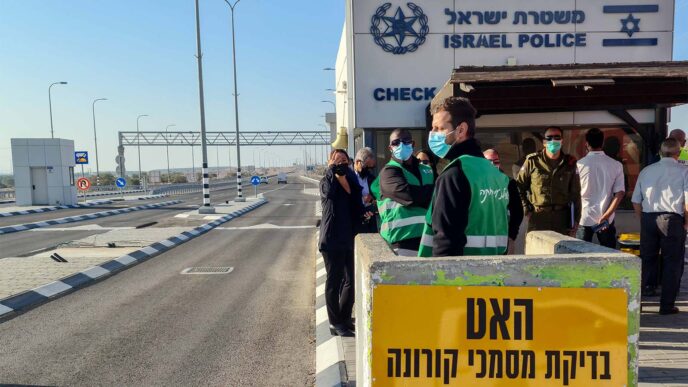
Eilat is now open for tourists – provided they can show a negative coronavirus test result at a checkpoint as they enter. The city, once an example of the coronavirus’ economic toll, is now striving to become an example of safe recovery.
Green Islands
Back in October, Yitzhak-Halevi was already pushing hard to bring a reopening plan to Eilat.
“Without tourism in Eilat, we would have to create new jobs and welfare programs,” he told Davar in October. “We would enter an irreversible crisis,” he told Davar in October.
He sent a plan to Israel’s so-called coronavirus cabinet, a group of government officials tasked with making policy decisions to deal with the crisis.
“This is the only city based entirely on the tourism industry,” Yitzhak-Halevi said. “Everyone understands that this city should be treated differently.”
By mid-November, a version of his plan had been put in place. It refers to Eilat and the Dead Sea as “Green Islands,” a term based off of Israel’s classification of cities as red, yellow, or green, according to their coronavirus caseload. Eilat and the Dead Sea have both received the “green” classification, according to their relatively low coronavirus caseload, and their isolated locations allow for better control.
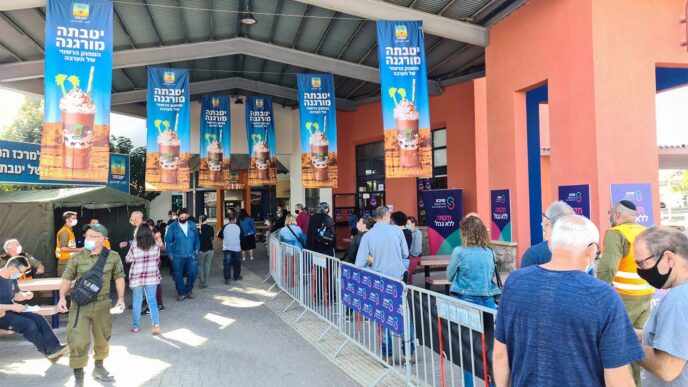
In Eilat, restaurants are now open for outdoor dining. Tourist attractions are open, as long as they can provide each person on the premises seven square meters of personal space. And 20 customers are allowed into shops at a time, compared with just four shoppers in other parts of the country.
To enter, tourists must present a negative coronavirus test result from a test performed within the past 72 hours. Results are checked at two checkpoints as drivers enter the city.
Residents of Eilat and the area around the Dead Sea, and those who come to Eilat for work, are also required to take a rapid coronavirus test every seven days. Additional checkpoints have been set up to allow for this.
Tourists can catch the bus to Eilat from Tel Aviv, Haifa, Jerusalem, and Be'er Sheva. The buses will also pass through the rapid test checkpoint, where passengers can take rapid coronavirus tests and then wait until their test results are available.
‘The coronavirus did not stop life underwater’
Eilat residents and workers have been looking forward eagerly to the return of tourists.
"We’re excited, and the camels are excited, they are tired of standing around and doing nothing," said Tal Peri-Tal, 46, a father of two and the owner of a camel and donkey farm in Eilat, where visitors can pay to ride the animals.
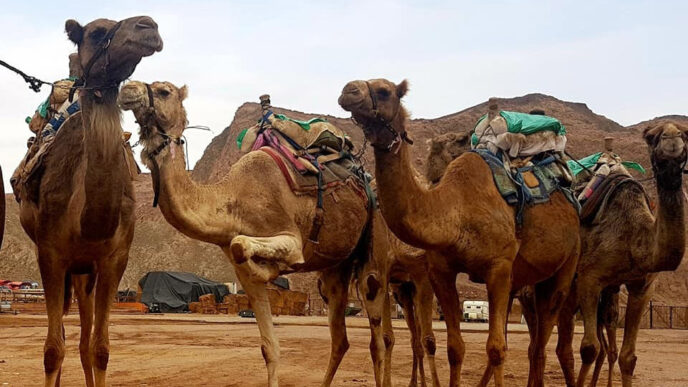
“The animals have not moved for three months, they need to walk, get in shape," he said.
Peri-Tal closed the farm in March, and didn’t reopen until July. He had to furlough his employees. “We have 22 employees, who have been working with us for over 10 years,” he says. “We are left with me, my wife and my son. We alone maintain the farm and the animals.”
“We want to open everything tomorrow,” said Peri-Tal. “I hope people will understand that the situation in Eilat was very difficult, and come and help this city recover.”
“Eilat is not Eilat without its special tourist attractions – camels, beaches, diving, shopping, the promenade at night,” says Aviv Levy, the scientific director of the Eilat Underwater Observatory, and a resident of Eilat for over 45 years.
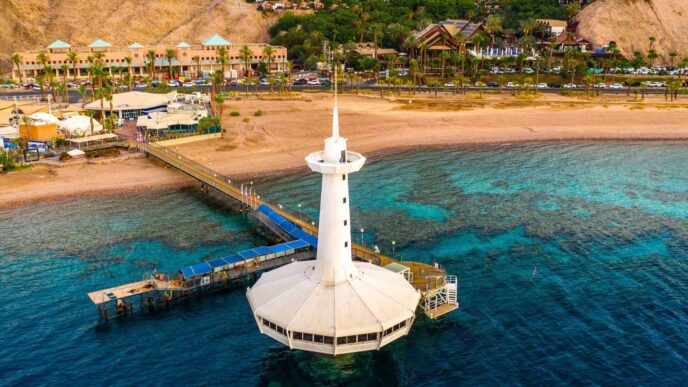
“Tourism is connected to all the residents of the city in one way or another,” he added. “Without the tourist attractions, it’s like something is missing from our body."
Levy says that work never fully stopped at the observatory, even as lockdowns closed it to visitors.
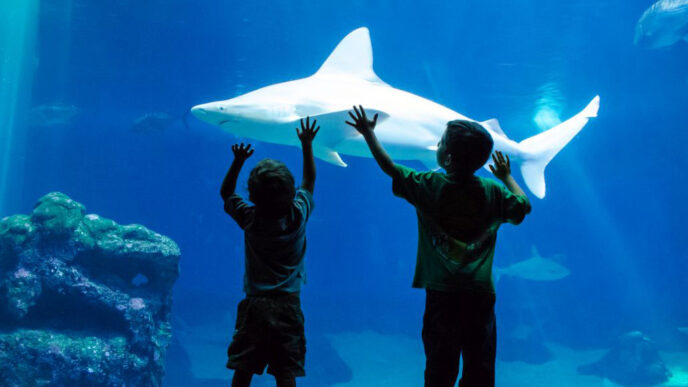
“Coronavirus did not stop life underwater,” he said. “The scientific team and the diving team work every day, feed the animals, take care of the corals, maintain the daily treatment routine."
Still, he says, the return of tourists en masse will be a transition. The staff is preparing to lead socially distanced presentations, and the premises are being thoroughly disinfected.
“The turtles and sharks and other animals need to be re-accustomed to tourists,” he added.
An “international pilot”
This past weekend was the first one open to tourists since the new plan was implemented last week. Tens of thousands of vacationers visited Eilat, eating at restaurants and visiting the city's highlights and its shops. Hotels recorded occupancy of around 70% over the weekend.
Police forces working at the entrance checkpoint sent 250 vehicles to return north, after passengers failed to present a valid negative coronavirus test result. On Sunday, city inspectors arrested three civilians who entered the city using fake coronavirus test results.
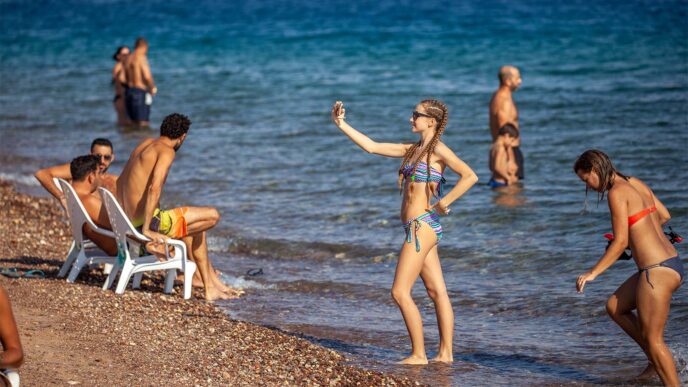
Still, officials seemed pleased.
“I am very happy that all in all, logic and common sense prevailed and we declared Eilat a Green Island,” said Yitzhak-Halevi, calling Eilat an “international pilot” that other tourist regions around the world might emulate.
As of Sunday, the percentage of positives among the residents of Eilat tested for the virus was about 0.3 percent, with 22 verified cases. The test positive rate in Israel overall is around two percent.






